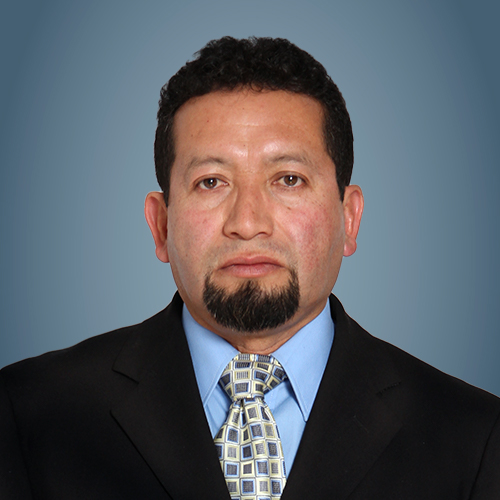DISCIPLINARY BACKGROUND
Why study the PhD in Environmental Sciences?
Our planet has suffered significant environmental deterioration, which in the last decade has manifested itself drastically. The future is not encouraging in environmental terms. That is why higher education institutions aim to respond to this social problem through academic programs of excellence, which with a vision based on academic bodies with frontier research and under a legal, economic, social and cultural framework should present solutions to state, national and international environmental problems. The Doctorate Program in Environmental Sciences offered at the UAEH has a focus on research in environmental issues and in this area is considered a priority research on pollution and climate change, a situation of global concern.
Overall objective
To train researchers with a current scientific-technical knowledge of the factors and processes involved in environmental sciences; capable of applying their skills productively and creatively in the development of research work that responds to the environmental problems of the state of Hidalgo, Mexico and the rest of the world.
Specific objectives:
- To develop in students research capabilities based on skills for the search and analysis of scientific information, through instruments for predictive modeling of energy, climate, emissions and management scenarios; as well as the use of state-of-the-art equipment and methodologies for the estimation and quantification of pollutants, greenhouse gas emissions, impact, risk and environmental vulnerability assessment, natural resource management and biodiversity care.
- To achieve that students acquire basic scientific attitudes for their formation as researchers, such as: scientific rigor, adequate use of the criterion of truth, independence, solid knowledge, imagination, vision and projection.
1. Impact of Pollution and Climate Change
Determine and quantify the presence of pollutants in soil, water and air, as well as greenhouse gases, to generate environmental quality indicators, evaluate their impact on the environment and identify their emission sources.
Environmental technologies and treatments
Develop procedures for environmental remediation such as: assimilation of clean technologies and biofuels, soil recovery, extraction of water pollutants, reduction of air emissions and solid waste management, through the application of new materials and technologies, so that their innovation leads to the mitigation of the anthropogenic impact on the environment.
3. Ecotoxicology, Food and Environmental Health
The objective of this line is to study the effects caused by contaminants in living systems and to obtain the relationships between the type and concentration of the contaminant and the clinical results within human populations, the behavior of flora and fauna species.
As can be seen, in order to carry out studies within these LGAs, training is required in many of the disciplinary subjects of the program, such as Ecology and Climate Change, Environmental Contamination, Soil Contamination, Soil Treatment, these same disciplines for water and air, as well as other supporting disciplines in technological sciences and public health.
Basic Academic Core
We have 16 full-time researchers with Ph.D. degrees.
- Silvia Chamizo-Checa, Elena Otazo-Sánchez, Alberto J. Gordillo-Martínez, César A. González- Ramírez, Juan Suárez-Sánchez, Héctor Muñoz-Nava. 2018. Effect of climate change on mean per capita natural water availability in sub-basins of the Mezquital Valley, Hidalgo, Mexico. Revista Iberoamericana de Ciencias (in press).
- Irasema Islas-García, Claudia Romo-Gómez and Flor de María Cuervo-López (2017). Ampicillin Mineralization by Denitrifying Process: Kinetic and Metabolic Effects. Appl Biochem Biotechnol, DOI 10.1007/s12010-017-2483-7.
- M. de la Luz Hernández-Flores, Elena M. Otazo-Sánchez, Mauricio Galeana-Pizaña, Edgar I. Roldan-Cruz, Ramón Razo-Zárate, César A. González-Ramírez, Eric Galindo-Castillo, Alberto J. Gordillo-Martínez (2017). Urban driving forces and megacity expansion threats. Study case in the Mexico City periphery. Habitat International, 64, 109-122. doi.org/10.1016/j.habitatint.2017.04.004.
- Maryev Fonseca, Yolanda Marmolejo, Iriana Zuria, Francisco Prieto, Fidel Pérez and Claudia Romo. 2017. Cadmium in tissues, feathers and pellets of tecolote llanero from Hidalgo, Mexico. Revista Iberoamericana de Ciencias. 4(6):144-153. ISSN 2334-2501.
- Flores, R. A. C., F. P. García, E. M. O. Sánchez, A. M. B. Miró and O. A. A. A. Sandoval, 2018. Pyrolysis optimization of agricultural waste using Taguchi L9 orthogonal array design. Bulgarian Journal of Agricultural Science, 24 (No 2) 2018, 259-269.
- Palacios-Romero, A., Rodríguez-Laguna, R., Razo-Zárate, R., Meza-Rangel, J., Prieto-García, F., & Hernández-Flores, M. L. (2017). Survival of plants of Pinus leiophylla Schiede ex Schltdl. & Cham. by adding water reservoirs at transplanting in a greenhouse. Revista Chapingo Serie Ciencias Forestales y del Ambiente, 23(1), 35-45. doi: 10.5154/r.rchscfa.2015.09.046.
The PhD program in Environmental Sciences, direct modality offered at the UAEH has an experienced faculty that allows it to work with other non-academic sectors of society. So far, the agreements have required an activity that has not allowed linking students, since it compromises their time and the scientific level of the thesis topics, which is the primary objective of the program. On the other hand, most of the results are not publishable. However, graduates of the program have been involved.
Table 1 summarizes the most important agreements that have been carried out recently.
| AGREEMENT | Institution | Period | Teachers |
|---|---|---|---|
| Climate Action Program for the Municipality of Tulancingo | SEMARNAT HIDALGO and Municipality of Tulancingo de Bravo | 2014-2016 | César A. González Ramírez, Elena Ma. Otazo Sánchez, Ramón Razo Zárate Otilio A. Acevedo Sandoval |
| Design and development of a technological platform for the creation of new high specificity vegetal activated carbon products. | CLARIMEX (CALL C003V-2013-01 CONACYT PROINNOVA) |
2013-2015 | Francisco Prieto García |
| Design and installation of a pilot plant for the evaluation of catalysts for the catalytic reforming of naphtha. | UAEH-UATlx-ITP CONACYT-SENER HYDROCARBONS | 2012-2015 | César González Ramírez José Roberto Villagómez Ibarra Elena María Otazo Sánchez |
| State Program for Action on Climate Change in the State of Hidalgo (second phase) | SEMARNAT | 2011-2014 | César González Ramírez Elena María Otazo Sánchez Ramón Razo Zárate Numa P. Pavón Hernández |
| State Program for Action on Climate Change in the State of Hidalgo | COEDE | 2011-2014 | César González Ramírez Elena María Otazo Sánchez Ramón Razo Zárate Numa P. Pavón Hernández |
In addition, there are working relationships with the Technical Committee for Groundwater: Tulancingo Valley Aquifer (COTAS).
On the other hand, professors belong to advisory bodies of the government and institutions, such as:
| Body or committee | Period | Teachers |
|---|---|---|
| Citizen Advisory Council of the State of Hidalgo | 2015-current | César A. González Ramírez, Elena Ma. Otazo Sánchez, Otilio A. Acevedo Sandoval |

Dr. Javier Castro Rosas
Integrante del Doctorado Tipo Directo
jcastro@uaeh.edu.mx
SNII: II
PRODEP: Vigente

Dr. Carlos Alberto Gómez Aldapa
Integrante del Doctorado Tipo Tradicional
cgomeza@uaeh.edu.mx
SNII: III
PRODEP: Vigente

Dra. Gabriela Alejandra Vázquez Rodríguez
Integrante del Doctorado Tipo Tradicional
gvazquez@uaeh.edu.mx
SNII: II
PRODEP: Vigente

Dr. José Roberto Villagómez Ibarra
Integrante del Doctorado Tipo Tradicional
jrvi@uaeh.edu.mx
SNII: I
PRODEP: Vigente

Dr. Otilio Arturo Acevedo Sandoval
Integrante del Doctorado Tipo Directo
acevedo@uaeh.edu.mx
SNII: II
PRODEP: Vigente

Dra. Rosa Icela Beltrán Hernández
Integrante del Doctorado Tipo Directo y Tradicional
rosa@uaeh.edu.mx
SNII: I
PRODEP: Vigente

Dra. Claudia Coronel Olivares
Integrante del Doctorado Tipo Directo
ccoronel@uaeh.edu.mx
SNII: I
PRODEP: Vigente

Dr. César Abelardo González Ramírez
Integrante del Doctorado Tipo Directo y Tradicional
cramirez@uaeh.edu.mx
SNII: I
PRODEP: Vigente

Dr. Rodrigo Rodríguez Laguna
Integrante del Doctorado Tipo Directo
rlaguna@uaeh.edu.mx
SNII: I
PRODEP: Vigente

Dr. Juan Carlos Gaytán Oyarzún
Integrante del Doctorado Tipo Tradicional
cgaytan@uaeh.edu.mxSNII: I
PRODEP: Vigente

Dra. Claudia Romo Gómez
Integrante del Doctorado Tipo Directo y Tradicional
claudiar@uaeh.edu.mx
SNII: I
PRODEP: Vigente

Dra. Alma Delia Román Gutiérrez
Integrante del Doctorado Tipo Directo y Tradicional
aroman@uaeh.edu.mx
SNI: II
PRODEP: Vigente

Dra. Esmeralda Rangel Vargasa
IIntegrante del Doctorado Tipo Directo y Tradicional
esmeralda_rangel@uaeh.edu.mx
SNII: I
PRODEP: Vigente





